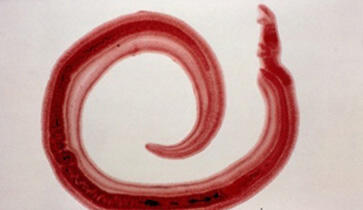
Schistosomiasis is a disease caused by parasitic trematode worms, infecting people in 78 countries, when they are exposed to infested water. The disease, which causes an estimated global burden of 3.3 disability adjusted life years (DALYs), is responsible for considerable adverse health and economic effects, particularly in vulnerable rural populations in sub-Saharan Africa. The mainstay of schistosomiasis control is large-scale preventative treatment, but for sustainable control other interventions such as snail control, behaviour change measures, and improved access to safe water and sanitation are essential.
Gaining and sustaining control of schistosomiasis and, whenever feasible, achieving local elimination is one of the 2020 targets set by the World Health Organization. In Zanzibar, various institutions and stakeholders have joined forces to eliminate urogenital schistosomiasis transmission. Zanzibar’s national schistosomiasis five-year control strategy, is working to interrupt transmission of the disease on the island of Unguja and to eliminate it as a public health problem (reducing heavy infection intensities to less than 10%) throughout the island of Pemba.
Dr Stefanie Knopp is a Postdoctoral Scientific Research Fellow of the Biomedical Parasitology Group in the Parasites and Vectors Division of the Department of Life Sciences at the Natural History Museum in London, UK. This is a joint position with the Ecosystem Health Sciences Unit in the Department of Epidemiology and Public Health at the Swiss Tropical and Public Health Institute (Swiss TPH) in Basel, Switzerland. In this role, Stefanie is responsible for designing, coordinating, conducting and reporting studies on the diagnosis, epidemiology and integrated control of helminth infections in Africa.
Dr Knopp visited LSTM on 2 April 2014 to deliver a seminar on her research programme: Schistosomiasis elimination in Zanzibar (Unguja and Pemba Islands): design and implementation of an integrated multidisciplinary programme. The programme currently undertakes a randomized intervention trial, to compare the impact of biannual mass drug administration (MDA) of praziquantel to the whole at-risk population, MDA plus snail control interventions, and MDA plus behaviour change interventions. The study involves a total of 90 communities across the islands Unguja and Pemba forming the Zanzibar archipelago in the United Republic of Tanzania.
Programme fieldwork involves identifying suitable freshwater habitats where people come into regular contact with water infested by the intermediate host snail Bulinus, whilst washing clothes, bathing or playing. Snails were collected from over 100 sites and the bodies of water sprayed with a treatment (niclosamide) to kill the snails. However, in most locations the snails were found to have returned a couple of months after spraying. One problem the teams face is treating a section of river or larger lake, which compared to smaller lakes or ponds, limits the impact of the spraying treatment but allows the survival of snails and other creatures.
Qualitative interviews are conducted at community level with schoolchildren, teachers, parents and community leaders to determine relevant knowledge, attitudes and practices and revisited annually to determine any changes to knowledge, attitudes and behaviour. The results of the interviews were discussed in community workshops and four main points were identified to better inform schoolchildren of the risks associated with playing in infected bodies of water and to prevent infection: i) improving and enhancing teaching methods in schools, ii) providing alternative safe play options for children, iii) implementing urinals closed to the human water contact points, and iv) implementing washing platforms closed to safe water sources.
The reported coverage of biannual MDA treatment is approximately 80% of the at risk populations. The first parasitological follow-up survey conducted one year after the baseline survey in early 2013 did not yet reveal a significant impact of the interventions on Schistosoma haematobium prevalences, but interventions, by then, had only been fully implemented for less than 6 months. Moreover, multiple factors, including environmental conditions affecting snail breeding sites, knowing if the drug combinations distributed actually were being taken and the sustainability of behaviour change, may have all affected the results. Interventions are ongoing until 2016 and changes in prevalence and infection intensity will continue to be assessed annually.
These and future findings from the study will contribute to identifying what, in addition to preventive chemotherapy, needs to be done to ultimately eliminate schistosomiasis.
In 2013, LSTM’s Professor David Lalloo visited LSTM alumnus Dr Khalfan A. Mohammed, who is the Ministry of Health programme manager for the neglected tropical diseases control programme in Zanzibar. Professor Lalloo was joined by a film crew from the Discovery Channel, as part of the internationally successful series Bugs Bites & Parasites: Tropical Diseases Uncovered. Demonstrating the global interest in the advances made towards the control of schistosomiasis in Zanzibar.